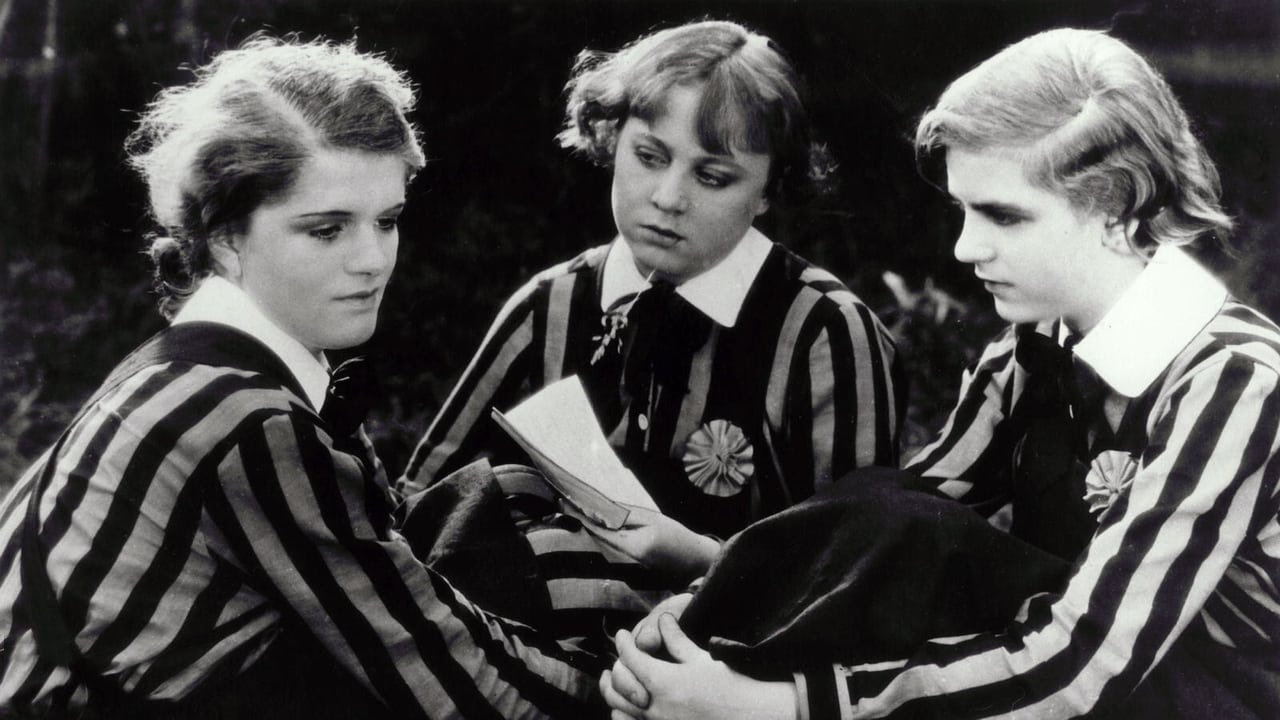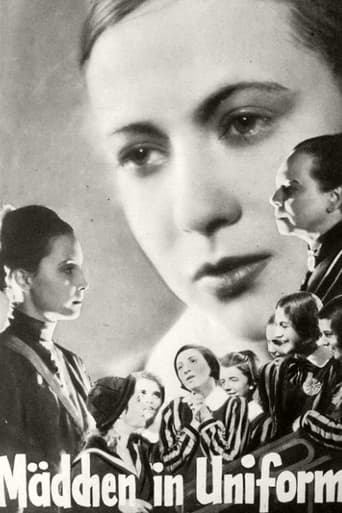

A lot of fun.
... View MorePretty good movie overall. First half was nothing special but it got better as it went along.
... View MoreThis is one of the few movies I've ever seen where the whole audience broke into spontaneous, loud applause a third of the way in.
... View MoreA great movie, one of the best of this year. There was a bit of confusion at one point in the plot, but nothing serious.
... View MoreAlthough it would have been nice to see a well-restored and cleaned-up print of this, which was not the case, it still seems an exceptionally well made film for its era. The camera work was fluid and the sound was decent. It is a rich, provocative study with much to think about. While famously seen as a lesbian story, and that is part of it to be sure, it also concerns the rigid authoritarianism of its particular time and place, which soon led to so much sorrow and tragedy and sends out a strong feminist and tolerant message. The story is never boring and easily holds one's interest these many years later. It is strongly atmospheric and immerses one in the hothouse environs of the strictly disciplined, all-female world, where the girls develop close and intimate relationships and passionate crushes on their favorite teacher, Dorothea Wieck. She is fine here, and so is Hertha Thiele as Manuela, the primary focus of the story, but then the entire cast performs well, including Erika Mann, daughter of Thomas Mann and wife of W.H. Auden, as a bespectacled, tattle-tale instructor always running to the head of the school. The ending sent out a strong message and worked well, though you are left on your own to wonder how things resolved themselves as per the two lead characters. Well worthwhile to see if you can find it!
... View MoreThis is a highly unusual film from just before the Nazi era. It's about a Prussian-style girls school and the difficulty a new arrival has at fitting in to the stupidly strict system (i.e., rules just for the sake of having rules). This difficulty is remediated, somewhat, by a kind housemother. In this relationship, there are strong hints of lesbianism, though considering this is the early 1930s, a modern viewer may find the treatment of this taboo a little vague and silly--though not nearly as silly as the excised gay scene from Spartacus. For this reason alone, it is a very curious movie. I actually would have found it perhaps more interesting if they had either allowed this relationship to evolve more or if they had helped the young infatuated girl to understand how these feelings are, perhaps, related to her loss of her mother and her own pubescence (another parallel issue in the movie). Oh well. This isn't really a complaint, just curiosity.Late in the movie there is a dandy climax (cinematic, not sexual). The young girl is pushed and pushed unmercifully by the draconian headmistress until she attempts suicide. I liked this touch, but wonder how the story might have been different if either the girl HAD actually died. Also, after she is saved, the movie ends with the headmistress visibly shaken--but ends there. I wanted to see what would happen next in the mind of the movie's writers and director.Oh well, enough of my ranting. It's a good, though not great movie with themes that make it either an adult film or at least one you should think twice before letting your teens see it alone (maybe see it with them and discuss the images instead).
... View MoreThis film is amazingly well done. Given the time period in which it was made, the way it tackles the issue of homosexuality is quite revolutionary. The film is ambiguous when it needs to be and direct when the audience really needs to make connections. Hertha Thiele plays her role convincingly. The use of symbolism, as well as other allusions to psychoanalytic thought are both hilarious and effective. Unfortunately, the subtitles are horribly written. I am surprised that a German film institution has not redone them, or re-released this classic film in better quality. I thought the Goethe institute was all about things like this.
... View MoreThe German film Madchen in Uniform was an interesting film. I was a little caught off guard because first I didn't know that it was a foreign film and secondly I wasn't in the mood to see a film of that sort on that particular night. Thus since I feel that there is a certain type of movie to fit each mood and if you watch a phenomenal movie when you are not in the mood to see it the caliber of that film declines in your mind. Thus I don't think I gave this film a fair chance from the beginning. I thought it was interesting how this film reflecting an obvious presence of lesbians and homosexuality experimentation far preceded its time. I also think that not only did it far precede its time that I thought people were open to homosexuality but I would never expect a film to portray homosexuality in a positive light in the 1930s. However, one thing that I don't understand about the film is that when it came to America supposedly all of these aspects of homosexuality were censored. I don't understand if you took out all of these signs that point to lesbians what parts of this movie would remain. I think the only worthwhile aspect of this film lies in the context with which it discusses homosexuality.
... View More